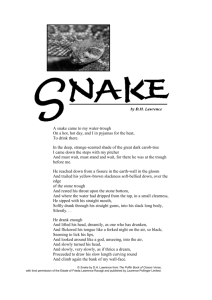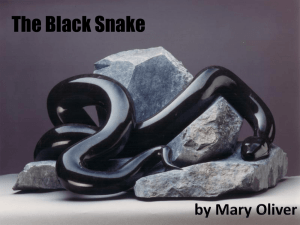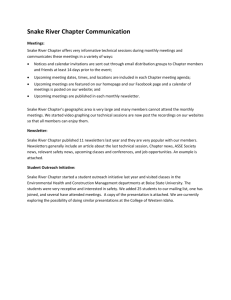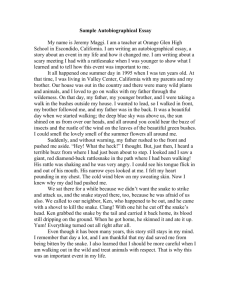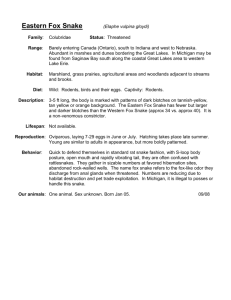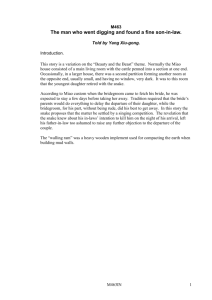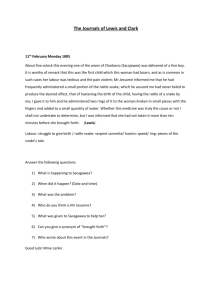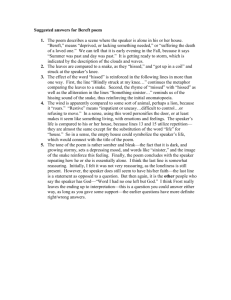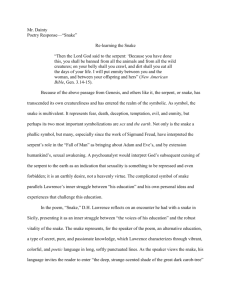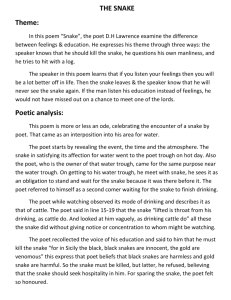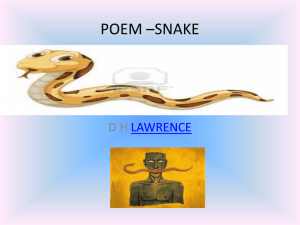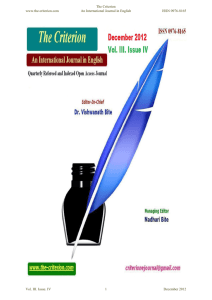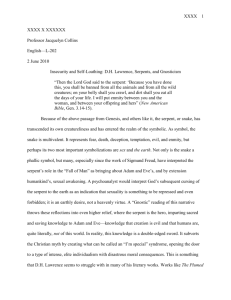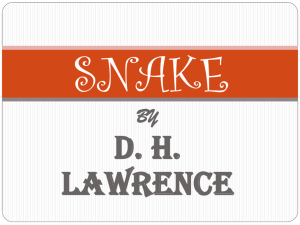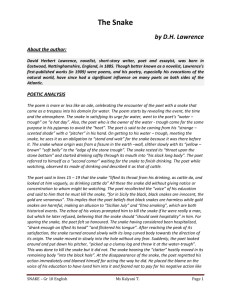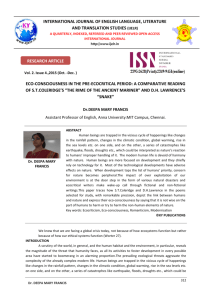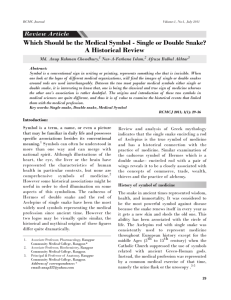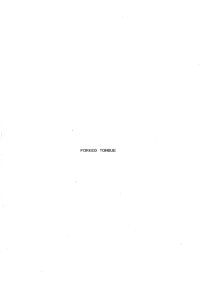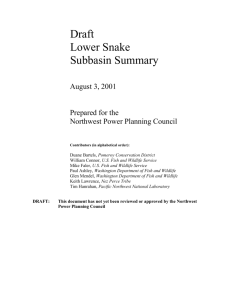Lawrence's "Snake": An Analysis In his poem "Snake," DH Lawrence
advertisement
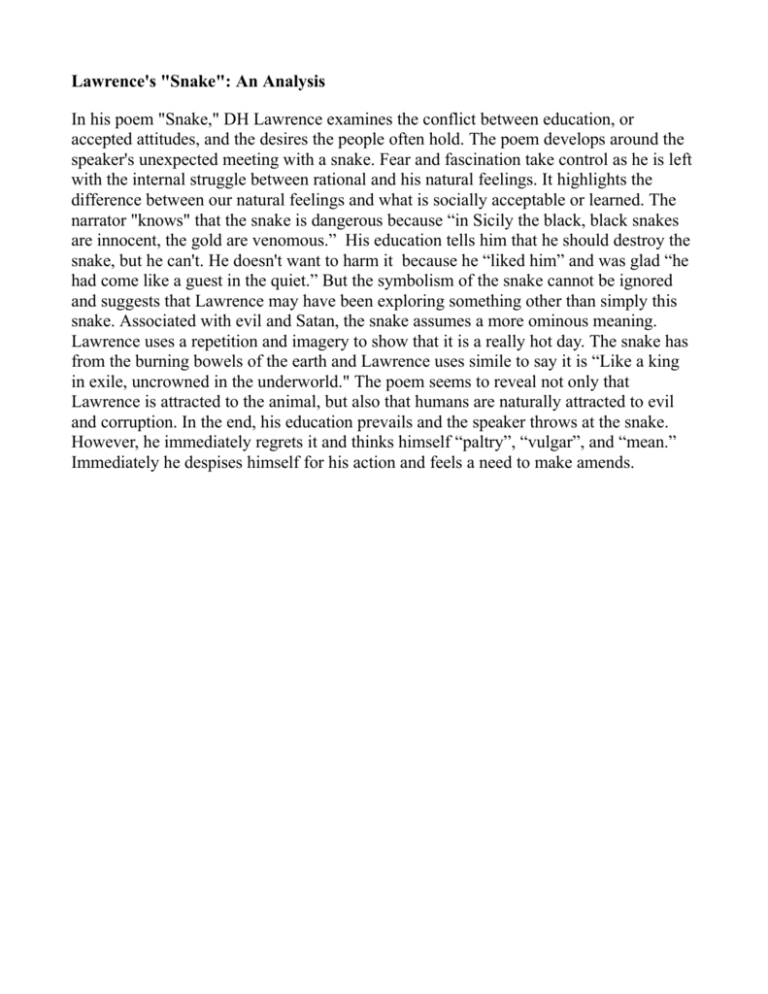
Lawrence's "Snake": An Analysis In his poem "Snake," DH Lawrence examines the conflict between education, or accepted attitudes, and the desires the people often hold. The poem develops around the speaker's unexpected meeting with a snake. Fear and fascination take control as he is left with the internal struggle between rational and his natural feelings. It highlights the difference between our natural feelings and what is socially acceptable or learned. The narrator "knows" that the snake is dangerous because “in Sicily the black, black snakes are innocent, the gold are venomous.” His education tells him that he should destroy the snake, but he can't. He doesn't want to harm it because he “liked him” and was glad “he had come like a guest in the quiet.” But the symbolism of the snake cannot be ignored and suggests that Lawrence may have been exploring something other than simply this snake. Associated with evil and Satan, the snake assumes a more ominous meaning. Lawrence uses a repetition and imagery to show that it is a really hot day. The snake has from the burning bowels of the earth and Lawrence uses simile to say it is “Like a king in exile, uncrowned in the underworld." The poem seems to reveal not only that Lawrence is attracted to the animal, but also that humans are naturally attracted to evil and corruption. In the end, his education prevails and the speaker throws at the snake. However, he immediately regrets it and thinks himself “paltry”, “vulgar”, and “mean.” Immediately he despises himself for his action and feels a need to make amends.
